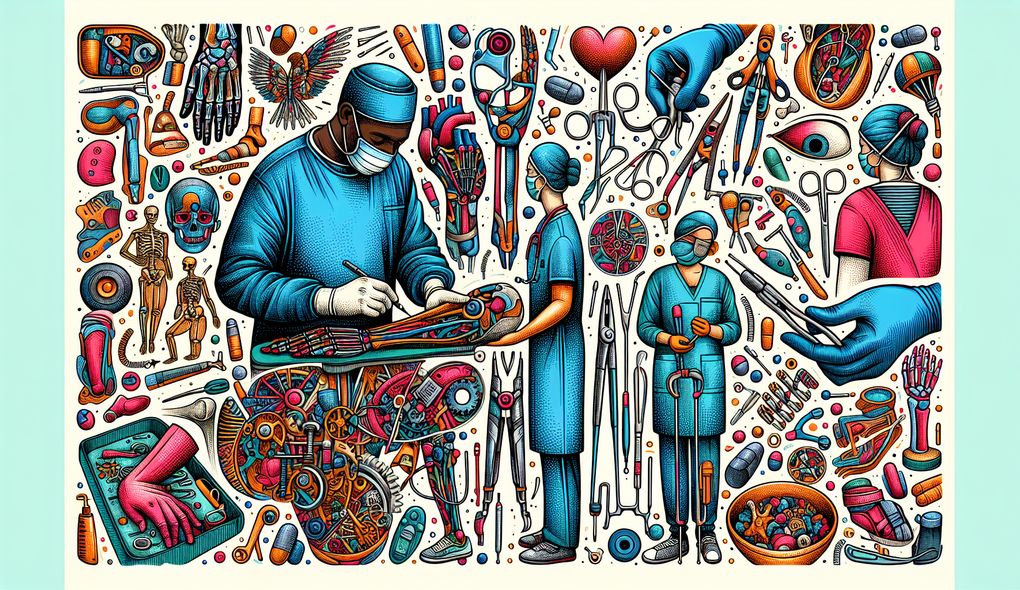How do you ensure effective communication with patients who have limited health literacy or understanding of medical terminology?
JUNIOR LEVEL

Sample answer to the question:
When communicating with patients who have limited health literacy or understanding of medical terminology, I take a patient-centered approach. I use simple and jargon-free language to explain medical concepts and procedures, ensuring that they understand the information. I also provide written materials, such as brochures or pamphlets, that are easy to read and comprehend. Additionally, I encourage patients to ask questions and clarify any doubts they may have. To reinforce the information, I often use visual aids, diagrams, or models to demonstrate complex concepts. Overall, I prioritize clear and effective communication to ensure that patients with limited health literacy fully understand their medical condition and treatment options.
Here is a more solid answer:
In my previous role as a surgical nurse, I encountered patients with limited health literacy and understanding of medical terminology. To effectively communicate with them, I would start by assessing their level of understanding and tailoring my communication accordingly. I would avoid using complex medical jargon and instead use clear and simple language to explain their condition, treatment options, and potential risks. To reinforce understanding, I would provide written materials, such as brochures or handouts, that simplified medical information. Additionally, I would use visual aids, such as diagrams or models, to help them visualize the procedures. I would also encourage questions and actively listen to their concerns. By involving the patient in their own care and using a patient-centered approach, I was able to ensure effective communication and improve their health literacy.
Why is this a more solid answer?
The solid answer includes specific examples of past experiences and projects, demonstrating the candidate's ability to effectively communicate with patients who have limited health literacy. The candidate mentions assessing the patient's level of understanding, avoiding medical jargon, providing written materials and visual aids, and actively involving the patient in their care. However, the answer could be further improved by providing more quantifiable outcomes or results from these experiences.
An example of a exceptional answer:
In my role as a medical educator, I developed and implemented a comprehensive health literacy program for patients with limited understanding of medical terminology. This program included workshops, interactive presentations, and one-on-one coaching sessions. Through these educational initiatives, I taught patients about their medical conditions, treatment options, and how to navigate the healthcare system. I also collaborated with other healthcare professionals to create written materials, such as patient handbooks, that were accessible and easy to understand. As a result of these efforts, we observed a significant improvement in the health literacy levels of the patients, leading to better adherence to medical recommendations and improved health outcomes. I believe that by combining patient education with innovative communication strategies, we can effectively bridge the health literacy gap and ensure that all patients receive the care they deserve.
Why is this an exceptional answer?
The exceptional answer goes beyond the basic and solid answers by providing specific details of a past experience where the candidate developed and implemented a health literacy program. The answer highlights the use of workshops, interactive presentations, coaching sessions, and collaborative efforts with other healthcare professionals. The candidate also mentions the positive outcomes resulting from these initiatives, such as improved health literacy and adherence to medical recommendations. This answer showcases the candidate's expertise in patient education and their commitment to addressing health literacy challenges.
How to prepare for this question:
- Familiarize yourself with common medical terms and procedures and try to explain them in simple language.
- Research different patient education materials, such as brochures or visual aids, that can be used to improve health literacy.
- Practice active listening and empathy to better understand patients' perspectives and tailor your communication accordingly.
- Consider seeking opportunities to collaborate with other healthcare professionals or organizations to address health literacy challenges.
- Stay updated on advancements in patient education and health literacy strategies through continuous learning and professional development.
What are interviewers evaluating with this question?
- Communication Skills
- Patient Education
- Health Literacy

